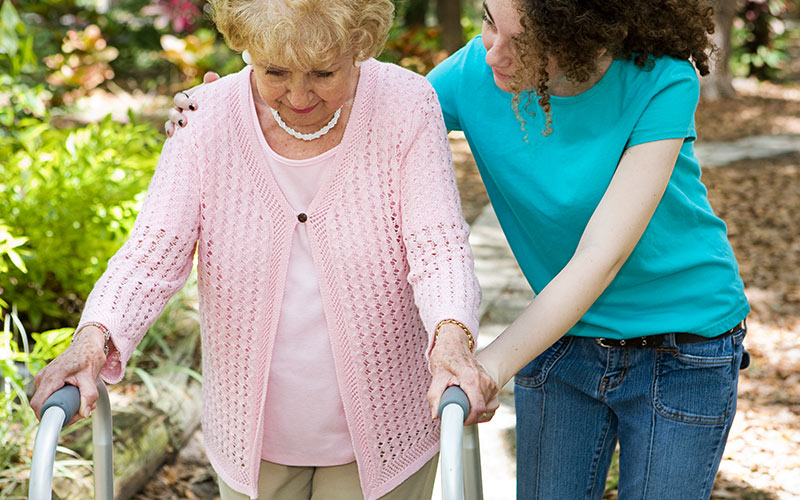When you’re younger, you aren’t always very well-versed in all of the struggles that people often face later in life. Mobility issues can be a real life-changing thing for elders, in fact, that applies to people of all ages so if you have a parent, an aunt or uncle, a friend, or anyone else in your life that deals with mobility issues, this applies to them as well.
Having a basic understanding and empathy towards what they’re going through will make sure you’re able to stay patient and will have a big influence on their overall happiness and quality of life. It feels good to know someone understands, even someone younger like a grandchild.
3. Mobility Aids like Wheelchairs or Tall Walkers are SO Helpful
Something that you may take for granted like walking up a small step or fitting through a narrow doorway can pose a real challenge for some people. Whether it’s walking around the grocery store for 30 minutes, or just being able to reach something on a shelf, simple tasks that most of us take for granted could be a dreaded part of someone else’s day.
There are devices and tools that can make these challenges easier, and as a caregiver or just a loving family member, you should try to learn what their struggles are and which products could be helpful. For example, have you ever seen those spoons and forks that were created for people with hand tremors, so they don’t spill their food? Or something more common like tall walkers (which are also referred to as tall rollators) which help people get around and maintain independence. Having the tools to do things for themselves helps keep a sense of dignity, independence, and pride. It’s so important.
2. Patience

When it takes them a little longer to get around, you’ll find yourself having to wait and slow yourself down a bit. That’s okay. At the end of the day, you’ve still got your mobility, and it’s a really bad feeling to feel like you’re slowing everyone down all the time, so just be mindful of this, be mindful of your facial expressions, and don’t make a big deal out of it.
You might think its time for them to do this or that, but if they don’t want to at the moment, you can show them respect by waiting until they’re more comfortable or ready. When there are tasks that need to be done, and you’re the caregiver, it can be easy to forget that this is still a person with the agency over themselves and their bodies, so a little patience can go a long way in demonstrating that you respect that.
1. Communicate Your Intentions
When you’ve got to help someone with certain tasks, whether it’s helping them sit upright, or helping them move their arms, or whatever… it’s important to verbalize what you’re about to do. Even if they need your help, you don’t want to catch someone off guard or have them feel like they have no control or say in their physical being.
Just a quick “Hey grandma, I’m going to help you sit up now,” or “hey grandpa, I’m about to feed you some soup,” can make a big difference.
If you notice signs that you have a controlling grandma, you may need to adjust your strategy accordingly to make sure that you aren’t being manipulates.
